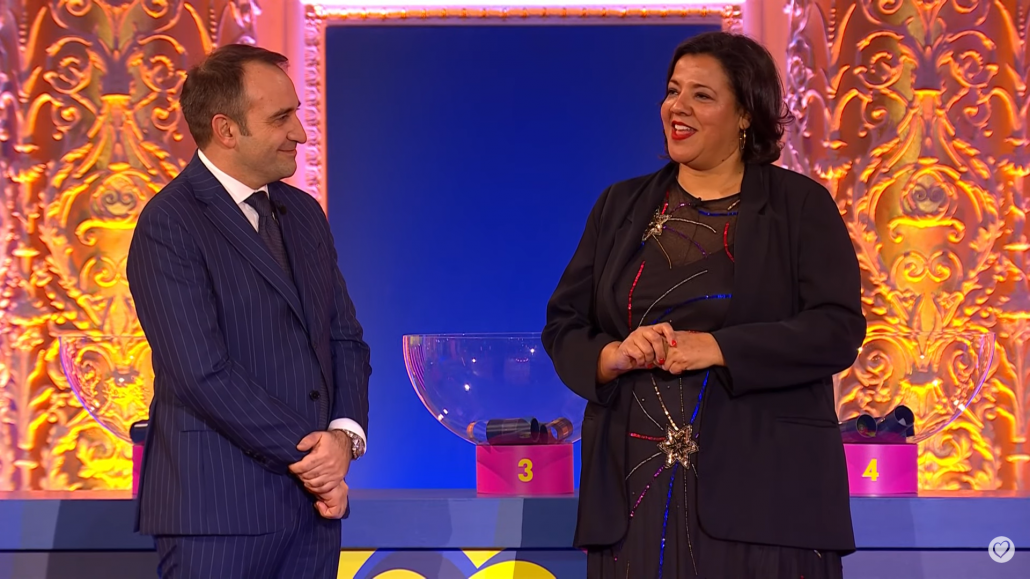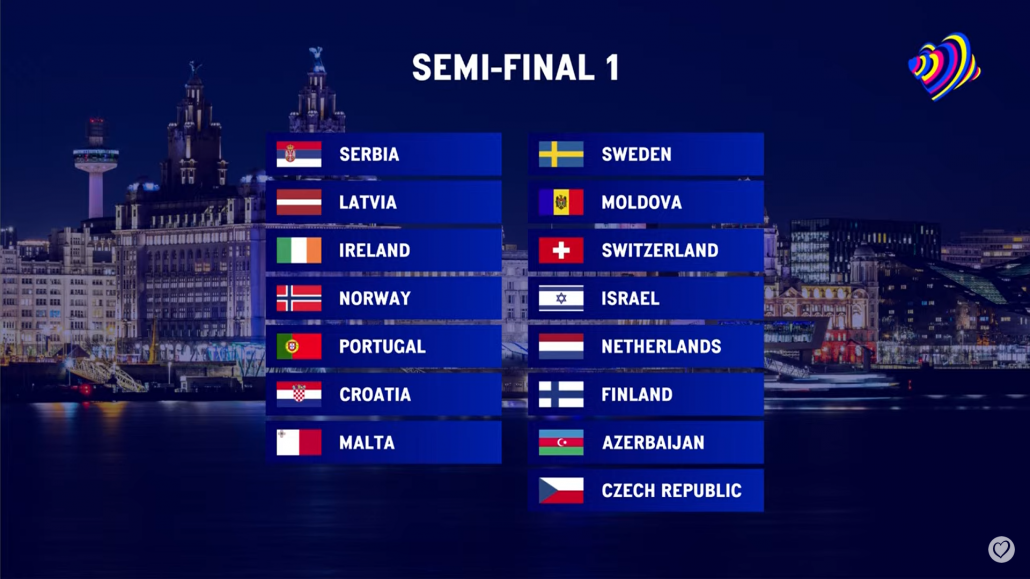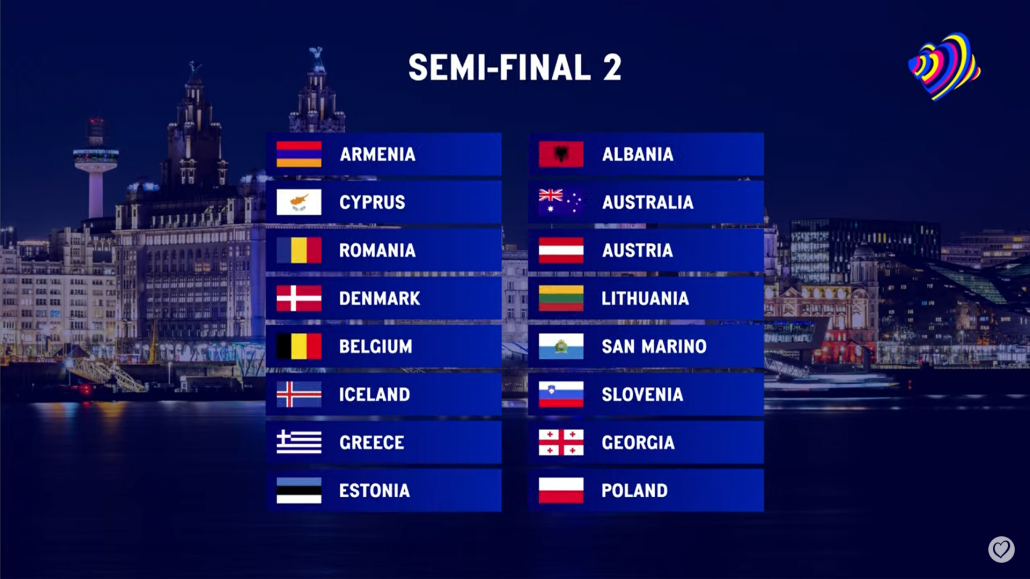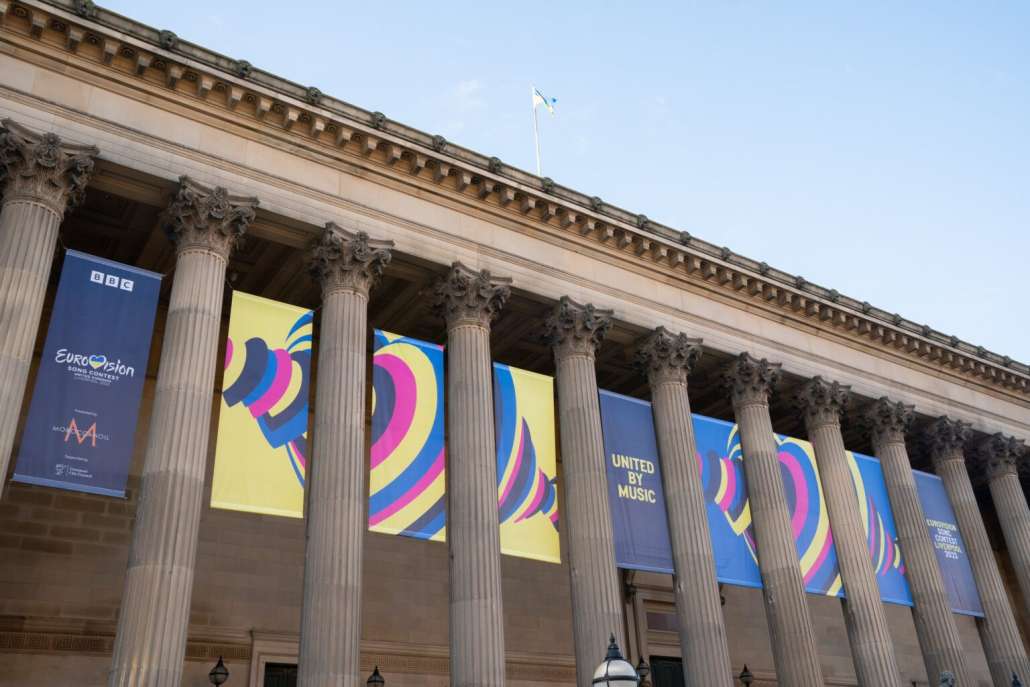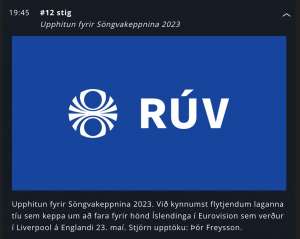Α revelation that shook the waters of the competition took place earlier today. The EBU has announced changes to the voting system of the Eurovision Song Contest.
One of the most important changes are that now only the public will choose the finalists in the two semi-finals, while now global viewers from countries all around the world that do not participate in the competition will also be able to vote!
You can see all the changes HERE.
The most important question is, What would have changed in the contest’s Semi-Finals if only the public chose the 10 finalists?
We will answer this question through this article, by seeing which countries would have qualified for the final from 2010 to 2022, if only the public vote was used, and which countries would have ultimately failed to qualify due to the lack of the juries.
Changes in the Results (2010-2022)
2010
In 2010, the system of 50% juries and 50% public vote, was applied for the first time in the Semi-Finals. There we find the first differences.
In the first Semi-Final we would have the qualification of Finland who finished sixth in the public vote, against Bosnia and Herzegovina who finished eleventh and were favored by the jury’s fifth place.
In the second Semi-Final, we would have the qualification of Lithuania and Sweden, against Israel and Ireland. In addition, the winner of the Semi-Final would be Azerbaijan and not Turkey.
Which means Sweden wouldn’t have failed to qualify once in their history at the competition.
2011
In the first Semi-Final, we would have the qualification of Armenia, Norway and Turkey, against Switzerland, Lithuania and Serbia. In fact, Lithuania was first by the juries and eleventh in the audience.
That means Turkey would have no non-qualifications in their history in the competition.
In the second Semi-Final, we would only have the qualification of Belarus, against the fan favorite that year, Estonia.
2012
Another year with huge changes in the results of the semi finals. In the first Semi-Final we would have Switzerland qualifying instead of Hungary.
In the second Semi-Final we would have the qualification of Bulgaria and the Netherlands, instead of Malta and Ukraine. Also, Norway was last in the jury vote and was saved by the public.
With these results, Ukraine would have lost the record as the only that has never failed to qualify for a final!
2013
Moving forward in 2013.
In the first Semi-Final, Croatia and Montenegro would have qualified against Estonia and Moldova. In fact, Moldova was third in the juries, while Montenegro was fourth in the audience.
In the second Semi-Final, Bulgaria and Switzerland would have qualified instead of Armenia and Georgia. While Romania would have been the winner of the semi final, instead of Azerbaijan.
2014
This year we can see two big changes. In the first Semi-Final we would have the qualification of Portugal instead of Azerbaijan, while in the second semi the qualification of Ireland, instead of Malta. In fact, Malta was third in the jury vote and twelfth in the public vote.
2015
In the first Semi-Final we would have the qualification of Finland, instead of Hungary, while in the second the Czech Republic instead of Azerbaijan.
2016
Moving on to the next year, in the first Semi-Final we would have seen the qualification of Bosnia-Herzegovina, instead of the Czech Republic and in the second Semi-Final we would have the qualification of North Macedonia and Belarus, instead of Georgia and Israel.
Τhe winner of the second semi final would have been Ukraine with Jamala, instead of Australia.
2017
In the first Semi-Final we would have the qualification of Finland instead of Australia, while in the second the qualification of Switzerland and Estonia, instead of Austria and Denmark. In fact, Australia was fifteenth in the audience and second in the juries.
2018
Let’s go to 2018 and see that in the first Semi-Final, we would have the qualification of Greece and Yianna Terzi, instead of Eugent Bushpepa, from Albania. Also, the winner would be Eleni Foureira and not Netta.
In the second Semi-Final, we would have Poland qualifying instead of the Netherlands, while the winner of the Semi-Final would be Denmark and not Norway. In fact, Denmark was twelfth in the juries.
2019
We can see some changes in 2019 too.
Poland would once again go through to the final instead of Belarus, while the winner of the first Semi-Final would be Iceland rather than Australia.
In the second Semi-Final, Lithuania would have qualified instead of Denmark, while the winner of the Semi-Final would have been Norway and not the Netherlands.
2021
Eurovision Song Contest came back after one year and in the first Semi-Final, we would have the qualification of Croatia with Albina, against Hooverphonic from Belgium. Finally, the winner of the Semi-Final would be Ukraine and not Malta.
In the second Semi-Final we would have the qualification of Denmark and Fyr og Flamme, against Anxhela Peristeri from Albania, while the winner of the Semi-Final was Finland, instead of Switzerland.
https://www.youtube.com/watch?v=vKdxjoNluzY&feature=emb_title
2022
Last but not least we have this year’s edition of the contest. In the first Semi-Final, we would have seen the qualification of Ronela Hajati from Albania and not Marius Bear from Switzerland.
https://www.youtube.com/watch?v=_jWXmo0-ZjI
Finally, in the second Semi-Final, we would have the qualification of Andromache (last in the jury vote), against Nadir Rustamli, who had zero points in the televoting.
https://www.youtube.com/watch?v=W2IUdTl-gAI&feature=emb_title
Conclusions
Which ones are favored by the new changes?
Based on the above, we notice that the removal of the juries from the Semi-Finals, can change a lot in the Semi-Final score, with obvious results in the Final as well.
The countries that we would say are favored by this change are Lithuania and Poland, countries with a large diaspora across Europe. Also, this change could make it easier for Turkey to return to the Competition.
The Balkan countries Bulgaria, Croatia, Montenegro, as well as Armenia, which has a strong diaspora, also benefit from the changes.
What are the implications?
Jury favourites, Azerbaijan, Australia and Malta seem to have some difficulty in the competition as their qualification in recent years has been largely down to the juries.
Ranking changes
Changes are also observed in the ranking. In particular, audiences seem to prefer funny presentations and ethnic and dance songs instead of ballads or vocally challenged entries in general that usually are more appreciated by the juries.
General Conclusion
With all the above, we can say that in 2023 the TV viewers seems to have the main responsibility with the results of the contest. Although, on the Grand Final we see the casual jurors deciding half of the results, things will changes dramatically since from this year the goal for a lot of countries will be to first reach the final by having a song that the public will support. This also means that EBU seems to want to attract more and more of the public attention, but what would happen if a lot of good entries stay out of the final and more and more “funny” songs qualify but the juries still ignore on their final voting?
What a country will have to do to win both is find the entry that can surprise both the viewers and the jurors on the final night.
Stay tuned to EurovisionFun for all developments regarding the 67th Eurovision Song Contest.


